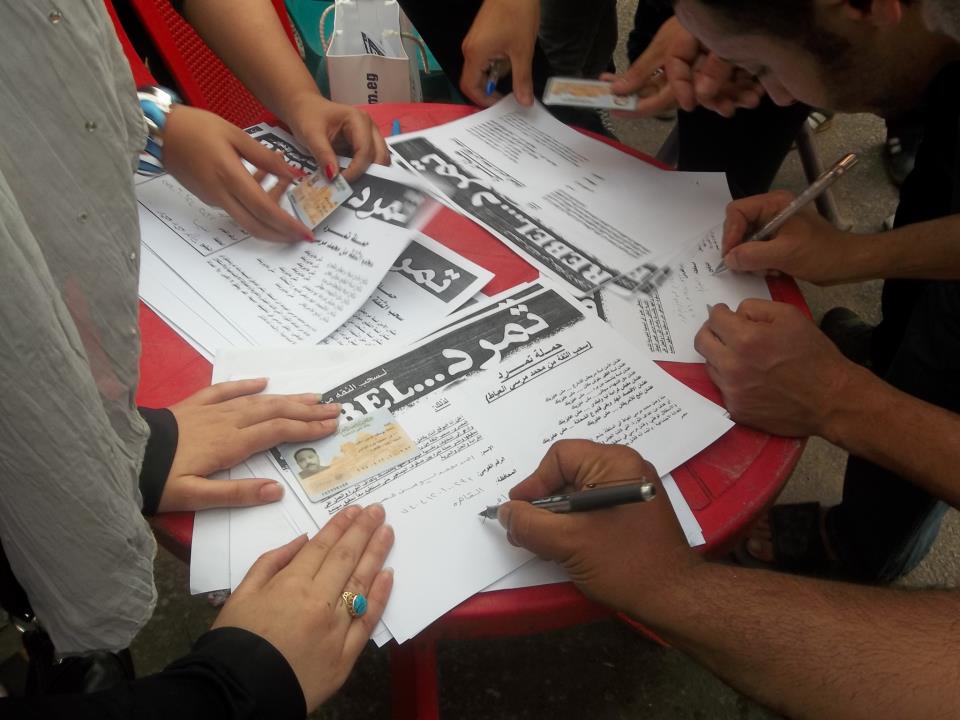CAIRO: European and Egyptian officials held a crisis meeting in Cairo Sunday night to dispel the recent human rights furor triggered by a contentious European Parliament (EP) resolution.
The Egyptian-European Economic Council met to ensure that the recent resolution passed by the EP criticizing the human rights situation in Egypt would not affect business ties.
Matters were further convoluted when a meeting of the EU-Egypt subcommittee on political affairs scheduled to take place on Wednesday and Thursday in Cairo was cancelled by the foreign ministry.
Klaus Ebermann, ambassador of the Delegation of the European Commission in Egypt, hoped this spat would pass soon and “not interrupt business.
Head of the Egyptian-European Economic Council Mohammed Aboul Einen concurred, saying that “this strong and strategic relationship between Egypt and Europe will never be broken. This is a very small issue. I believe we are on the right track.
The EU is Egypt’s biggest trade partner with 43 percent of the country’s imports and 31 percent of its exports traded with the European bloc.
Ebermann was critical of the subcommittee meeting cancellation and also took the foreign ministry to task for what he felt was a gross overreaction.
“I am surprised by the decision, because the scene was set [for the meeting]. I sincerely regret that this has now been put off the agenda for the moment. I’m surprised by the very forceful reaction of the Foreign Minister [Ahmed Aboul Gheit] and the decision to call it off, he said.
“There is a dialogue structure that has been created, it should be used, Ebermann added.But the representative for the foreign ministry at the meeting, Assistant Foreign Minister Nihad Abdel Latif, defended the ministry’s stance. Abdel Latif – who is also the head of the National Office for Steering the Work Plan and European-Egyptian Association Agreement – said, “Imagine that we are preparing for a dialogue and a few days before you have such a resolution which is already condemning, already shaming.
“What are we then going to have a dialogue about? It has created an atmosphere where there was a negative reaction so we decided it was not appropriate at all to hold this meeting and that it would not achieve its objective, he said
“I’m really surprised and regret what has been said about the foreign ministry. For us, dialogue is an essential element of our relations with the European Union. And this subcommittee was well prepared to have a dialogue with each other even if we don’t reach an agreement. [But recent events] have created an atmosphere of unease, Abdel Latif added.
The proposal that has caused a political ruckus over the past days was passed by the EP on Thursday, calling on Egyptian authorities “to end all forms of harassment, including judicial measures, detention of media professionals and, more generally, human rights defenders and activists.
The resolution also called for the release of political dissident Ayman Nour and for the revision of the law on the use of military courts – a practice which the Egyptian authorities have allegedly used to prosecute political opponents.
Yet those present at the meeting were adamant that the recent fallout would not obstruct normally excellent Egyptian-European relations.
“We need a dialogue; it will get us nearer to each other. This country (Egypt) is not blind to its problems, it is a strength and we will profit from this strength once we have established a dialogue which we will both lead on a basis of sympathy and a common future, German Ambassador to Egypt Bernd Erbel said.


